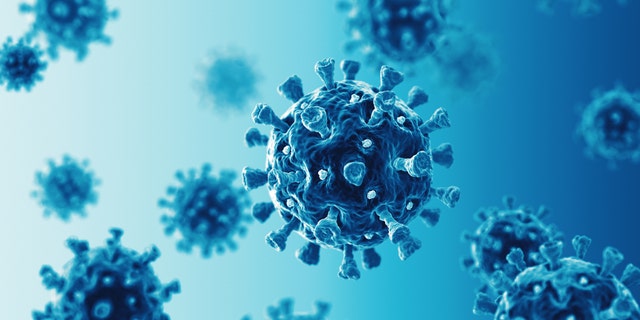
Fox News Flash top headlines for October 14
Fox News Flash top headlines are here. Check out what’s clicking on Foxnews.com.
Cases of COVID-19 patients being reinfected have cropped up around the world but experts say it’s unclear whether the virus will be like the vast majority of diseases and not return more severe on its second go-round.
“So far these cases appear to be very rare but they’re also not very surprising,” said David Hirschwerk, an infectious disease expert at Hofstra University’s Zucker School of Medicine.

Dr. William Schaffner, a professor of infectious disease at the Vanderbilt University Medical Center, said there are some viruses where cases of reinfection are so rare that they often appears in medical journals.
(iStock)
Hirschwerk said that health experts know from other seasonal coronaviruses that people can become reinfected despite having developed a degree of immunity the first time.
“[Immunity] certainly doesn’t last for someone’s entire lifespan,” Hirschwerk told The Post.
DUTCH WOMAN DIES AFTER CORONAVIRUS REINFECTION, CASE REPORT SAYS
So far, there have only been a handful of cases of reinfection documented out of the more than 37 million people across the world who have contracted the virus.
“I’ve been puzzled that we haven’t heard about more of them, but to prove it’s a true reinfection is kind of a high bar,” said Dr. Nicole Iovine, an infectious disease expert at the UF Health.
There may have been people who experienced symptoms again months later, but they didn’t seek treatment or their doctors don’t have clinical specimens to prove it was a second infection, Iovine said.
“You need the isolates from the patient so you can sequence or fingerprint them to see that they are a truly different strain,” she said.
So as a result, it still remains unknown whether reinfection cases will be far and few in between.
FIRST CORONAVIRUS REINFECTION CASE RECORDED IN US
Dr. William Schaffner, a professor of infectious disease at the Vanderbilt University Medical Center, said there are some viruses where cases of reinfection are so rare that they often appears in medical journals.
“We know that reinfections sometimes occur with some viruses, they’re generally pretty rare,” Schaffner said.
He said, for example, people can become sick again with measles and chickenpox but “it’s not a common event.”
“One of the things that’s true about measles is that the antibodies created are that is the dominant way the body fights off the virus and remain with you for life,” he said.
Both measles and chickenpox do not mutate quickly, therefore immunity is often lifelong in most cases.
Experts said COVID-19 has been fairly stable genetically but it’s still too soon to say where on the spectrum it falls between measles and influenza, which could have four strains circulating at any given time.
“[Flu] is such an ingenious virus that you don’t really have lasting immunity year to year because it’s able to mutate so significantly,” said Sandra Kesh, infectious disease specialist at WestMed Medical Group.
ORAL CORONAVIRUS VACCINE CANDIDATE ENTERS CLINICAL TRIAL
Experts could only cite one example of a disease that has a worse clinical outcome during reinfection — dengue fever, which if caught again kicks in an adverse immune response that can be fatal.
Most diseases either don’t return, or have similar or more mild symptoms.
But there have been two documented COVID-19 reinfections where the patients have seen worse outcomes the second time.
A 25-year-old Nevada man’s second case was “symptomatically more severe,” while an 89-year-old Dutch woman who had a rare form of cancer died when she fought the virus again.
But experts said there’s not enough evidence that a second bout would be more severe.
“The second infection tends to be milder or some cases asymptomatic with the exception of the Nevada man and the Dutch patient, who was a unique situation,” Kesh said.
CLICK HERE FOR COMPLETE CORONAVIRUS COVERAGE
“We are talking about a very compromised host, and that’s not a surprising outcome given that she was on chemo, she had cancer and her advanced age.”
Kesh said more research is needed tracking reinfections, but what she sees so far has been promising.
“It is reassuring that second infections are milder or asymptomatic or similar to the first infection,” she said.
But she added that “the next couple of years will be a process of learning”
“What we learn about the genetic dexterity of this virus and the immune response that is generated and whether the immune response is enough to come back for a different strain of COVID really remains to be answered,” she said.
Click for more from NYPost.com.
Source: Read Full Article
